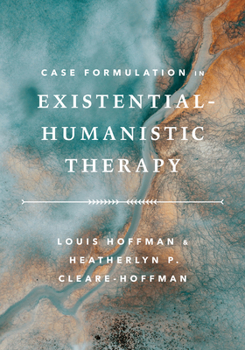Case Formulation in Existential-Humanistic Therapy
This book presents a nonhierarchical, liberatory case formulation framework for existential-humanistic (EH) therapy that balances structure and adaptability.
The authors have developed a flexible template that prioritizes general principles and client collaboration over scripted procedures or techniques. It emphasizes EH therapy's dynamic, creative approach while offering a structure that makes EH therapy easy to learn for students and to help practitioners meet insurance needs and to operate within regimented treatment settings. Each section of the case formulation template is detailed in its own chapter. These chapters cover: holistic narratives of the client's background and experiences; techniques for identifying the client's concern/problem, putting the client's perspective and systemic issues ahead of the diagnostic process; the theoretical aspects of case formulation, emphasizing important factors like the client's strengths and resources, biopsychosocial influences, and existential challenges; and treatment planning based on the client's evolving needs and goals.A recurring case example illustrates how to fill out each of these sections and is supplemented by other case examples.
Format:Paperback
Language:English
ISBN:1433842947
ISBN13:9781433842948
Release Date:June 2025
Publisher:American Psychological Association (APA)
Length:322 Pages
Related Subjects
PsychologyCustomer Reviews
0 rating





